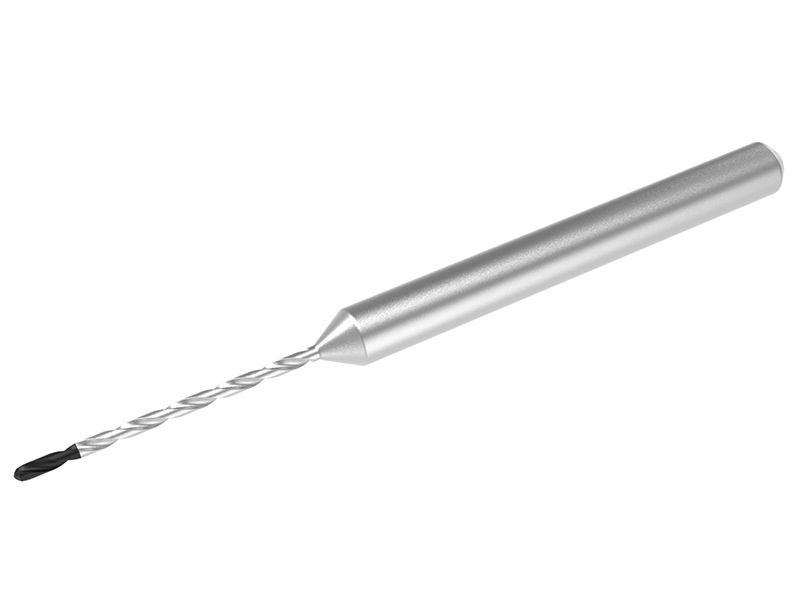Understanding the unique material characteristics of a PCD micro drill is fundamental to leveraging its full potential. These micro drills, crafted from polycrystalline diamond (PCD), stand out because of their exceptional hardness, long-lasting wear resistance, and superior thermal conductivity. This article examines how these attributes contribute to performance in high-precision micro-hole applications, and why PCD micro drills are often the best choice for demanding machining tasks.

The hardness of a PCD micro drill is one of its most critical material properties. JoyJet's PCD micro drills are made from synthetic polycrystalline diamond, which is among the hardest known engineered materials. This extreme hardness enables the micro drill to maintain a sharp cutting edge even under repeated high-speed drilling, making it far less susceptible to chipping compared to standard carbide or cobalt micro tools. Because of this, JoyJet PCD micro drills can reliably produce very fine-diameter holes (micro-holes) while preserving geometric precision and dimensional stability. The hardness also allows the micro drill to penetrate and work with very abrasive or hard-brittle materials—especially those that would rapidly wear down conventional micro-drills.
In addition to its hardness, the wear resistance of a JoyJet PCD micro drill is a defining characteristic that extends its service life significantly. The micro drill's PCD structure resists the harsh erosive effects often encountered when machining abrasive substrates such as high-silicon aluminum alloys, carbon-fiber-reinforced plastics (CFRP), or other non-ferrous composites. Thanks to the diamond particles bonded in a strong matrix, the tool can sustain repeated use and maintain its cutting geometry far longer than many traditional micro drilling tools. On JoyJet's site, their PCD micro drills are specifically highlighted for their ability to minimize burrs and wall tearing, which are common challenges when drilling micro-holes in precision components. Because the cutting edge remains intact for a longer period, this wear resistance not only improves consistency of hole quality but also reduces interruptions in production due to tool failure or regrinding.
One of the lesser-discussed but highly valuable material traits of JoyJet PCD diamond tools is their thermal conductivity. Diamond has among the highest thermal conductivity of any known material, and even in a polycrystalline form, this trait carries over to a PCD micro drill. Excellent heat conduction helps dissipate the heat generated during high-speed drilling of micro-holes, reducing localized temperature spikes at the cutting edge. By effectively conducting heat away, JoyJet's PCD micro drill maintains structural integrity, prevents thermal degradation of the diamond matrix, and reduces the risk of thermal damage to both the tool and the workpiece. This is particularly beneficial when machining delicate or temperature-sensitive materials where thermal distortion could lead to dimensional inaccuracies or compromised surface quality.
The synergy between hardness, wear resistance, and thermal conductivity is what gives JoyJet's PCD micro drill its cutting-edge performance. High hardness ensures precision and stability when cutting micro-features, outstanding wear resistance maintains that sharpness over many cycles, and efficient thermal conductivity mitigates heat buildup—together these yield durable, reliable micro-hole machining. When drilling, this combination allows the PCD micro drill to sustain high RPMs and constant feed rates without rapid wear, ensuring consistent micro-hole dimensional accuracy and surface finish. For micro drilling of non-ferrous, composite, or non-metallic substrates, this synergy is especially vital: the micro drill must cut cleanly, resist abrasive degradation, and manage thermal loads without losing performance.
The advanced material properties of JoyJet's PCD micro drill are particularly beneficial in industries and applications requiring ultra-precision and long tool life. For example, in semiconductor manufacturing, micro-holes must be drilled in brittle materials with tight tolerances. Here, the high hardness helps preserve cutting-edge integrity, while the wear resistance ensures stable performance across many cycles. In aerospace or automotive components made from composites (like CFRP), the combination of wear resistance and thermal management helps maintain hole quality and prevents delamination or damage. In electronics or medical machining where micro-diameter holes are critical, the thermal conductivity of PCD minimizes heat-induced distortion and ensures the integrity of both tool and workpiece. These material advantages make JoyJet's diamond micro drill an exceptional solution for precision applications where tool longevity and performance consistency are non-negotiable.

By appreciating the material characteristics of JoyJet PCD micro drills—especially their unmatched hardness, superior wear resistance, and excellent thermal conductivity—you can better understand why they outperform conventional micro-drilling tools in demanding applications. Whether working with composites, microelectronics, or other challenging substrates, these attributes make JoyJet's PCD micro drill a top-tier choice.